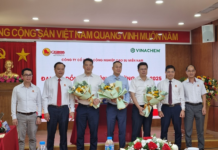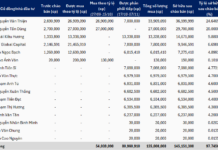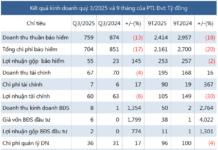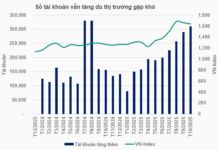On the morning of August 31, in Da Nang, Prime Minister Pham Minh Chinh, Chairman of the National Committee on Digital Transformation, chaired a nationwide online conference on improving the effectiveness of providing and using public online services. The conference aimed to take the deployment of online public services to a new phase of in-depth development.
The conference was connected online from the main venue at the Da Nang Public Administration Center to the People’s Committees of provinces and centrally-run cities.
In his opening remarks, Prime Minister Pham Minh Chinh stated that we are reviewing the implementation of the goals and tasks set by the Resolution of the 13th Party Congress. We need to improve what we have done well, accelerate what we are capable of achieving, and find breakthrough solutions for what we have not yet accomplished.

The Prime Minister emphasized that digital transformation has become an inevitable trend, an objective requirement, and a strategic choice for many countries. In this transformation, Vietnam has adopted a global, comprehensive, and people-centric approach, involving all sectors, regions, and communities. Both the state management and public service providers and the beneficiaries of these services must effectively utilize digital transformation to achieve the highest efficiency.
In recent years, digital transformation has been strongly promoted in both the public and private sectors, from central to local levels, and from urban to rural areas. It has reached every alley, every house, and every individual.
The thinking, actions, and habits of administrative agencies at all levels, as well as citizens and businesses, are gradually shifting from traditional paper-based processes to online environments, improving the efficiency and productivity of economic and social activities.
Along with these fundamental achievements, the Prime Minister also pointed out some limitations and shortcomings related to the mindset, perception, and actions regarding digital transformation. There are still instances where the desired level of understanding and response to practical needs has not been met, especially in remote, border, and island areas. Additionally, the effectiveness of online public services has not met expectations, with only 17% of local dossiers being processed entirely online…
Moreover, the deployment of online public services faces significant challenges, including the need to meet the increasing demands and high expectations of administrative agencies and citizens and businesses. There is also a large volume of paper-based information that needs to be digitized, and limited state resources, requiring the mobilization of social forces and harnessing the power of people and businesses through innovative thinking and vision. Developing Vietnamese digital products must first serve the needs of Vietnamese people and then reach out to the region and the world…
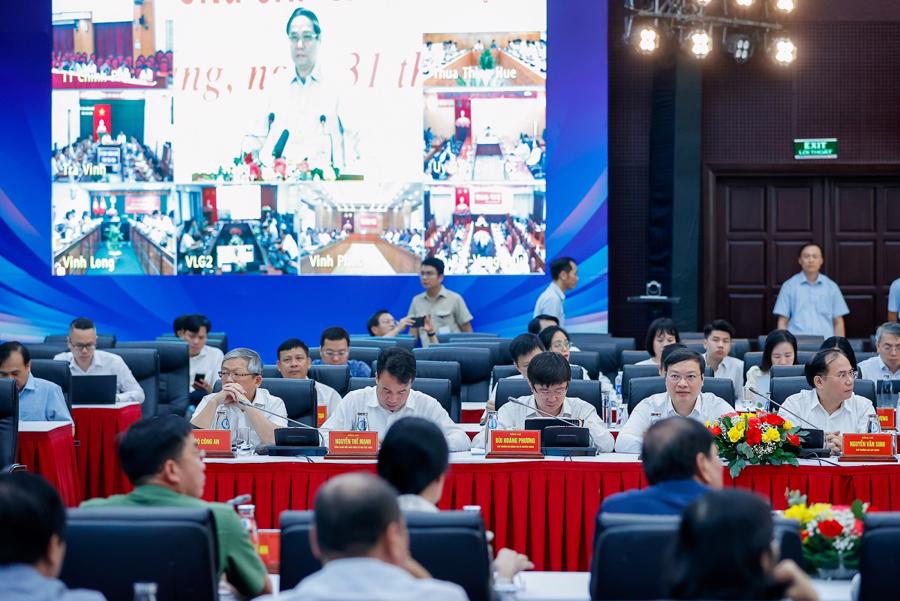
At the conference, the Prime Minister requested the delegates to focus on discussing and accurately evaluating the achievements in national digital transformation, especially in the deployment of online public services, and the benefits they bring to citizens and businesses. He also encouraged the sharing of effective models and practices for reference and replication, and for honestly addressing challenges, shortcomings, and bottlenecks, identifying their causes (both objective and subjective), and drawing lessons learned. Finally, he emphasized the importance of identifying key tasks and breakthrough solutions for the coming period to promote digital transformation and improve the effectiveness of providing and using online public services, contributing to the goals and tasks set by the 13th Party Congress.
According to a report by the Ministry of Information and Communications, Vietnam has gone through two phases of developing online public services since 2011.
The implementation of online public services has been successful, but the results vary across ministries, sectors, and localities. While some localities have achieved high rates of up to 69%, many others still have very low rates, especially for fully online dossiers.
To enter the third phase of deploying online public services, focusing on substantive development, it is essential to universalize online public services towards a fully online process. Ministries, sectors, and localities need to set goals for developing fully online public services immediately in 2024 and by 2025.
Specifically, for 2024, the target for ministries and sectors is to achieve a minimum of 70% fully online dossiers, while for localities, the target is a minimum of 30%. For 2025, the targets are a minimum of 85% for ministries and sectors and a minimum of 70% for localities.
To achieve these targets, the Ministry of Information and Communications has developed a Framework for Deploying Online Public Services to guide ministries, sectors, and localities in universalizing fully online public services. This framework will guide government agencies to: (1) Optimize the steps and processes for providing online public services through institutional review and improvement; (2) Develop digital tools, platforms, and applications to provide online public services based on digital infrastructure and data, with measurable and monitorable online performance, ensuring information security and cyber safety; (3) Develop digital talent; and (4) Meet the requirements and standards for deploying online public services.
The framework covers key areas: restructuring procedures and dossier components in administrative procedures; improving the quality of information systems for handling administrative procedures; developing digital infrastructure; building digital data repositories; ensuring cyber safety and information security; and implementing online measurement and monitoring.
The most extensive bribery case ever in Thanh Hoa: Numerous suspects prosecuted for “Giving and Receiving Bribes”
The Provincial Security Investigation Agency (PSIA) of Thanh Hoa province announced on January 31st that it has made the decision to initiate a prosecution against 23 individuals in connection with the offenses of “Accepting bribes” and “Giving bribes” as stipulated in Article 354(3) and Article 364(2) of the Criminal Code.
Accelerating disbursement of the 120 trillion VND credit package for social housing
Deputy Prime Minister Trần Hồng Hà has recently issued directives regarding the implementation of the 120,000 billion VND credit package for investors and buyers of social housing, workers’ housing, and projects for the renovation and construction of apartment buildings.












